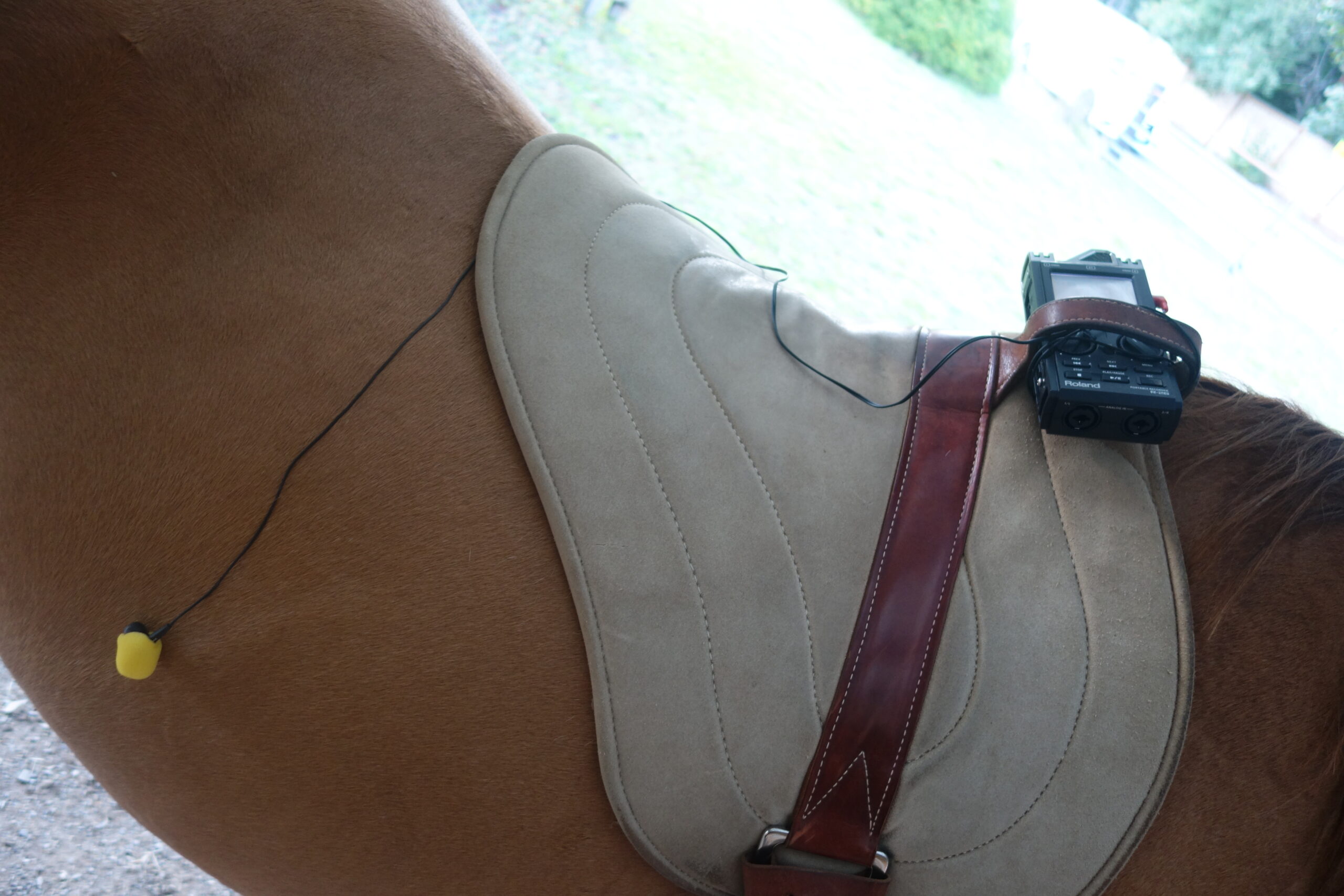One of the first decisions made on Ghost of Tsushima was that our main means of fast locomotion in the game would be horses. It made sense since that was what was used by both Mongols and Japanese warriors in the 13th century. There would be no grinding power lines or zipping through air vents or beaming from one radar dish to another. So of course we knew the horses needed to sound great.
Surprisingly I think the only other game I’ve worked on that almost had a horse was a Shrek game that got canceled. In that game in a very on-the-nose homage to Monty Python, there were knight enemies that rode around on hobby horses. For the knights footsteps I recorded coconuts and the results were as hilarious as intended. So for fun, when we first got the horse working in game, I re-recorded the same coconut shells and, while still hilarious, it didn’t quite fit tonally.
We began to research some places to record horses. The most important thing was we needed shoeless horses. While there was conflicting information about whether or not Mongols shoed their horses, we could find no information demonstrating the Japanese shoed their horses with metal, so we opted to keep things simpler and go for natural footsteps. After calling some places that fit the bill and driving around to check out their properties, assess noise levels, etc., we decided upon the Northwest Natural Horsemanship Center out in Fall City, WA. The owner Jim Hutchins, was keen to work with us and seemed genuinely interested in our work.
Unfortunately between the time we agreed to record there and the date of the recording, my sound designer had left for another position, so I was on my own for the session. One fewer person to operate microphones posed some problems, so I got creative: I followed the horse with a boom mic and strapped a recorder and a pair of omni electret condenser mics (a Roland CS-10EM) to the saddle which we taped down (and taped all buckles on the saddle).

Horses are amazing animals and when the horse first saw my furry blimp, it was not happy. We got lots of great nervous vocalizations which ended up as the final assets in the game as it got used to the presence of the blimp. From there Jim guided the horse around on various surfaces in their property (grass, tall grass, dirt, mud, wood, gravel, stone/concrete, and asphalt) at trot, canter and occasionally gallop speeds and I chased after them with my mic. We got A LOT of horse grazing because when a horse is hungry and has the lay of the land, they eat when they feel like it. These assets too were eventually massaged by Erik Buensuceso and made it into the game. In fact, the amount of grazing sounds we got and the frequency with which the horses naturally ate grass was the impetus for us adding the grazing animations into the game!
To get bigger whinnies and neighs, Jim put two of the horses together who were really good friends, and then separated them. Once one was led far enough away, the other would bellow out a very loud call for their friend. I inadvertently recorded a horse fart at one point, but was too far away so unfortunately it was not usable. Lastly, we went into their gear barn and recorded a bunch of sounds of various bridles and saddles, again taping down any metal parts since we wanted to avoid jangling components in the sound design.
Once I chopped up the assets and integrated them into the game I made this delightfully silly video to show at a company meeting:
But we were still a long way from being done. The horse had to sound great because it was used SO much in the game and we wanted to really push on the detail of everything about the horse from its footsteps to its saddle and bridle sounds to its vocalizations. I think when all was said and done the assets for the horse were probably touched by almost every sound designer on the project. I can think of at least 5 of us that did some work on the horse, tuning and improving and iterating to make them sound great.
On the mix side, Josh came up with a great idea we used on both hero and horse foley. We created an RTPC that tracked how long the player was running or the horse was galloping, which we used to subtle mix down the non-footstep sounds after 10-15 seconds. This served the purpose of helping reduce ear fatigue and allow other sounds to cut through the mix on long traversals. With this attention to detail we got some really nice dynamic behavior in the sounds in game.
Leave a Reply